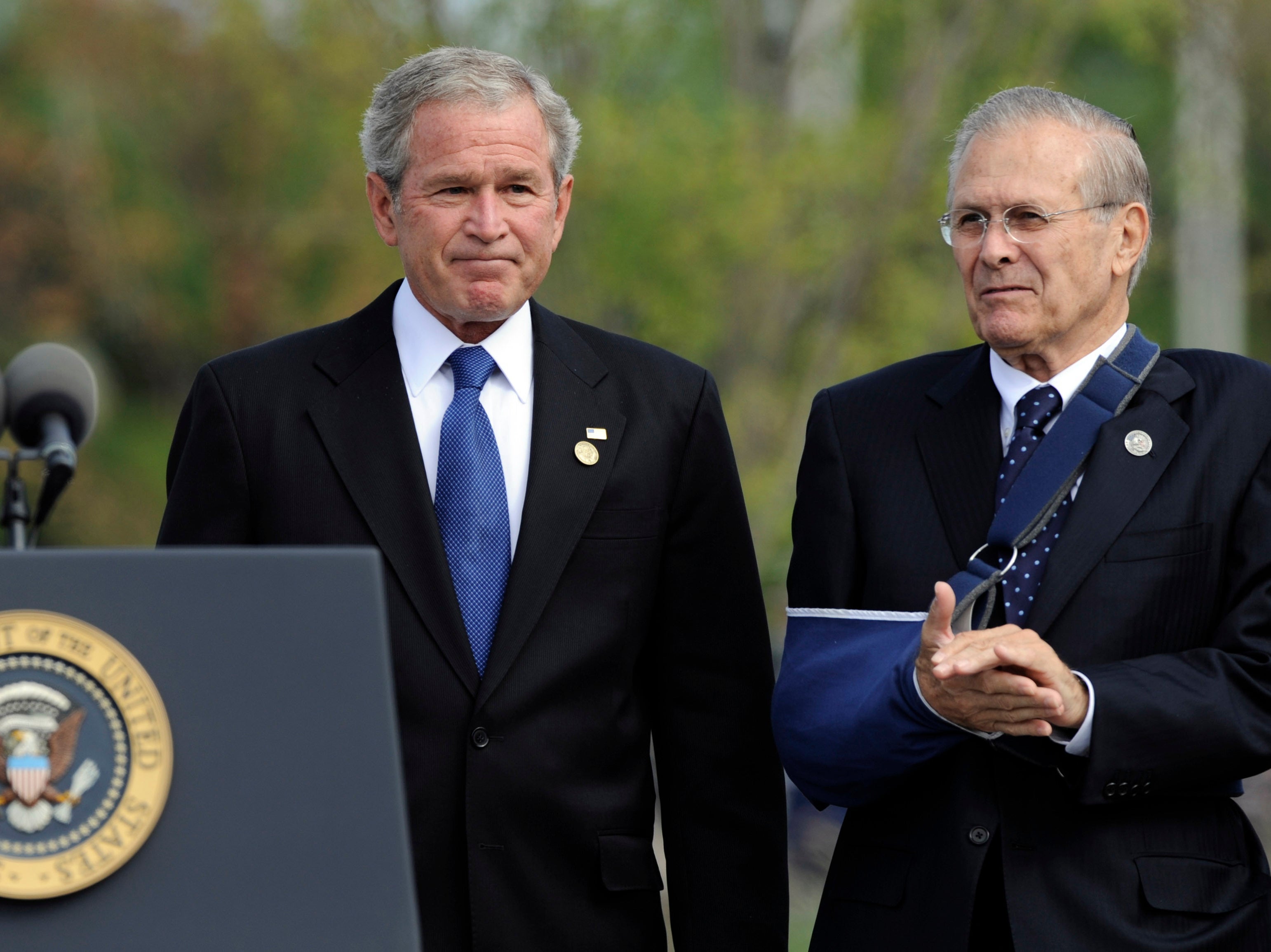Donald Rumsfeld death: Bush Defense chief who oversaw Afghanistan and Iraq invasions dies at 88
Iraq war architect served as defence chief for two presidents
Your support helps us to tell the story
From reproductive rights to climate change to Big Tech, The Independent is on the ground when the story is developing. Whether it's investigating the financials of Elon Musk's pro-Trump PAC or producing our latest documentary, 'The A Word', which shines a light on the American women fighting for reproductive rights, we know how important it is to parse out the facts from the messaging.
At such a critical moment in US history, we need reporters on the ground. Your donation allows us to keep sending journalists to speak to both sides of the story.
The Independent is trusted by Americans across the entire political spectrum. And unlike many other quality news outlets, we choose not to lock Americans out of our reporting and analysis with paywalls. We believe quality journalism should be available to everyone, paid for by those who can afford it.
Your support makes all the difference.Donald Rumsfeld, the former secretary of defence who oversaw the US invasions of Afghanistan and Iraq under President George W Bush’s administration, died at the age of 88, his family said on Wednesday.
Mr Rumsfeld served as US secretary of defence under two administrations, and became the youngest-ever person to serve in the role when in 1975 he was confirmed during President Gerald Ford’s administration. Under Mr Ford, he oversaw the US’ transition from a drafted military to an all-volunteer system.
His most notable contributions to US foreign policy came under the second Bush administration, when in the days following the 11 September terror attacks Mr Rumsfeld directed not only the invasion of Afghanistan but was reported to have privately made a significant push to invade Iraq as well. He believed there was a link between the 9/11 attackers and Saddam Hussein’s government, although none was ever found. However, he remained a leading proponent of the administration’s so-called “war on terror”.
President George W Bush yesterday praised his “steady service as a wartime secretary of defence – a duty he carried out with strength, skill, and honour”.

The US invaded both countries under Mr Rumsfeld’s leadership of the Pentagon, and Mr Rumsfeld saw his reputation tarnished as he became the face of the administration’s efforts to prove that Iraq had a stockpile and was actively producing weapons of mass destruction, none of which were ever located. He also became known for an infamous press conference in 2002 during which the military official referred to “known knowns” and “unknowns” in a delivery that came to sum up the United States’ convoluted efforts in the Middle East.
Further tarnishing his record were the war crimes committed by US service members at the Abu Ghraib prison in Iraq, for which Mr Rumsfeld publicly took responsibility as head of the Defence Department.
A statement from the family of Donald Rumsfeld: pic.twitter.com/AlKYxVvqgF
— Donald Rumsfeld (@RumsfeldOffice) June 30, 2021
"These events occurred on my watch as secretary of defence. I am accountable for them,” he said at the time.
The scandal and his overseeing of the US’ detention of suspected enemy combatants, many of whom were subject to “enhanced interrogation” techniques commonly known as torture, led to human rights groups in the US and abroad, including the American Civil Liberties Union calling for him to face criminal charges, though a court ruled in 2007 that he could not be held liable.
In his later years following a resignation from the cabinet in 2006, Mr Rumsfeld penned a memoir, Known and Unknown: A Memoir, for which he donated the proceeds to veterans’ groups. He also founded The Rumsfeld Foundation, a nonprofit organisation that encourages younger Americans to enter public service.

Join our commenting forum
Join thought-provoking conversations, follow other Independent readers and see their replies
Comments